GraphErr is an open-source error handling library for GraphQL implementations in Deno. It's a lightweight solution that provides developers with descriptive error messages, reducing ambiguity and improving debugging.
Repository
Current version released
2 years ago
Dependencies
deno.land/x
Versions
GraphErr
Descriptive GraphQL error handling for Deno/Oak servers.
Features
- Provides additional context to GraphQL’s native error messaging for faster debugging.
- Classifies the error type and includes a link to the GraphQL spec for more information about the error.
- Gives descriptive error messages to null responses, identifying the cause of the issue.
- Traditionally, GraphQL null responses lack error messaging.
- Enables quick development of GraphQL-equipped router.
- Generates GraphQL Playground IDE, allowing developers to write and execute queries.
Getting Started with GraphErr
Below is an example of a basic server you can use to run GraphErr. This server will run on http://localhost:3000/graphql by default.
import { applyGraphQL } from "https://deno.land/x/grapherr/applyGQL.ts";
import { Application, Router } from "https://deno.land/x/oak/mod.ts";
import { gql } from 'https://deno.land/x/graphql_tag/mod.ts';
const app = new Application();
// Define the GQL schema using GraphQL-tag (gql). More information on GraphQL-tag below in the README.
const typeDefs = gql`
type Query {
allUsers: [User!]!
}
type User {
_id: ID!
username: String!
password: String!
}
`;
// Define resolvers
const resolvers = {
Query: {
allUsers: () => {
return [
{ _id: 1, username: 'JohnDoe', password: 'Password123!' },
{ _id: 2, username: 'JaneDoe', password: 'Password1234!!' }
]
},
},
};
const GraphQLService = await applyGraphQL<Router>({
Router,
typeDefs: typeDefs,
resolvers: resolvers,
})
app.use(GraphQLService.routes(), GraphQLService.allowedMethods());
await app.listen({ port: 3000 });- Please import all necessary 3rd party modules (graphErr, oak, and gql).
- Oak is a middleware framework for handling HTTP requests.
- GraphQL-tag (gql) is a Javascript template literal tag that parses GraphQL query strings into the standard GraphQL AST.
- Define typedefs (using GraphQL-tag) and resolvers and pass both into applyGraphQL as shown in the code above.
- ApplyGQL accepts four arguments:
- Router: oak Router module
- path?: string
- A target path that handles the GraphQL post request (*optional: default as /graphql)
- typeDefs: any
- generated type tags by the gql
- resolvers: any
- An object that handles the queries and mutations
- ApplyGQL utilizes code from the Oak-GraphQL module. For additional information on ApplyGQL, please check out the OakGQL repository.
Making a Query
Here is an example query in the GraphQL playground:
query {
allUsers {
username
}
}The response would look like:
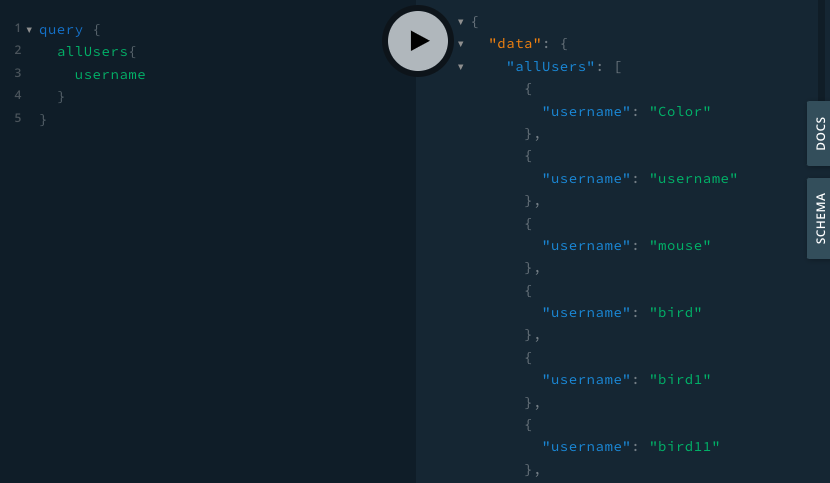
Functionality
Example #1 - Null response
Standard response:
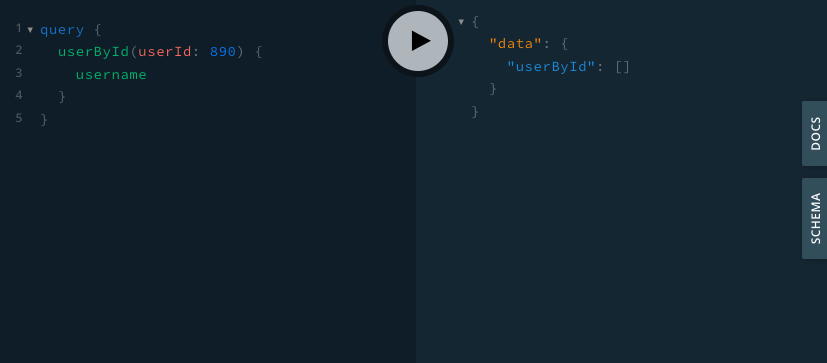
GraphErr response:
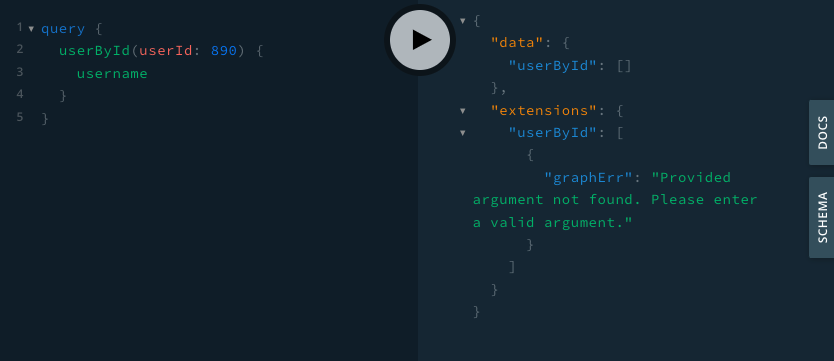
Example #2 - Native GraphQL error
Standard response:
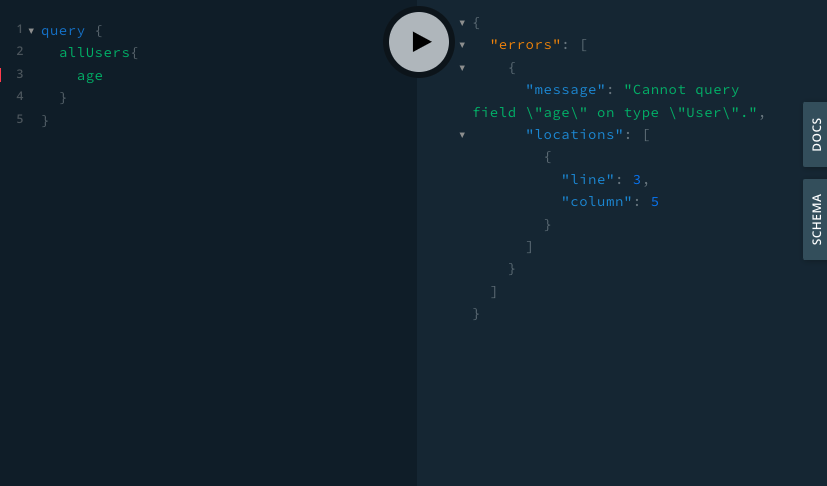
GraphErr response:
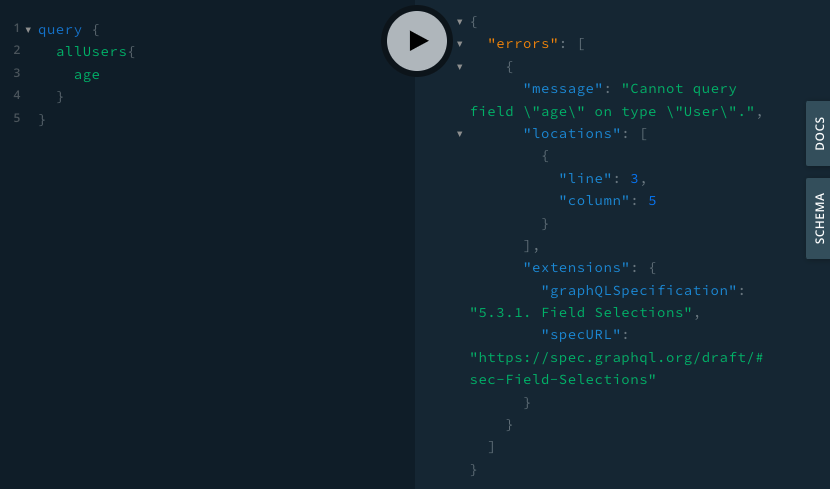
Suggestions
GraphErr is currently in beta. If you would like to contribute please contact the authors.
Notice any issues or bugs? Please open an issue. All feedback is greatly appreciated!
Authors
Documentation
Website: graphErr.land
Medium: Introducing graphErr: solving GraphQL’s questionable query response quirks